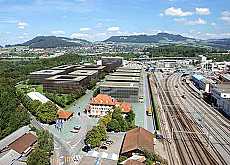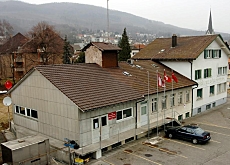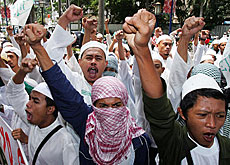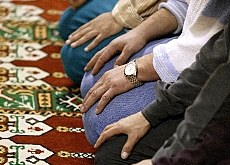Swiss Muslims plan giant Islamic centre

One of the largest Islamic cultural centres in Europe could be constructed in the Swiss capital, Bern.
The 23,000 square metre centre, the concept of which has been proposed by Umma, an Islamic coordination centre, will comprise a museum on Islam, a mosque, a convention centre, offices and a four-star hotel.
Farhad Afshar, Umma spokesman, confirmed reports in the NZZ am Sonntag newspaper and said that central to the project was “the prospect for a differentiated dialogue with Islam”.
Afshar said a global competition would be launched to find an architect to build the SFr60-80 million ($72-96 million) complex, which would be named the Avicenna Centre after a Persian philosopher and scientist who lived 1,000 years ago.
He said he hoped the centre would attract a similar level of interest and acclaim as the Paul Klee Centre, a museum dedicated to Swiss painter Paul Klee, which is also located in Bern.
The location under consideration is the former abattoir area in Wankdorf, northern Bern, near the Bern-Zurich railway line.
The land belongs to the city of Bern and is part of the development project called “Wankdorf City”. Various developers have shown interest in the property and the authorities are set to decide in summer on how to proceed.
Cultural richness
The business model of the Islamic centre is based on the House of Religions in Bern, work on which is set to begin in early 2008.
Afshar said the financing would be split between a public company, which would deal with the commercial element of the convention centre, and a foundation, which would be responsible for the cultural side.
A project study and a business plan are currently being worked out in order to meet the necessary requirements of the municipal authorities and the project’s investors.
Marco Ryter, from Bernese architects Bauart, which is carrying out the project study, said: “Every Swiss should be able to take their children by the hand and show them Islam in this museum.”
Afshar, who is also the Muslim representative on the Swiss Council of Religions, said showing the richness of Islamic culture around the world would play a central role, hopefully ensuring that the current fuss involving Islam would not degenerate into “unworthy debates” about headscarves and minarets.
Opposition
Islamic buildings have not always received a warm Swiss welcome. Moves to block the construction of minarets, the distinctive architectural features of mosques, are underway in various regions.
The cantonal parliaments of Zurich, Bern, St Gallen and Ticino are considering proposals to make the construction of buildings of worship, such as minarets, temples and churches, dependent on approval at the ballot box.
On a local level, rightwing extremists in the town of Langenthal in canton Bern have collected signatures and organised public protests against mosques.
Furthermore, a committee that includes parliamentarians from the rightwing Swiss People’s Party has announced an initiative aimed at blocking the construction of minarets.
Currently only two mosques in Zurich and Geneva have a minaret. There are about 310,000 Muslims in Switzerland, mainly from the Balkans and Turkey, representing up to five per cent of the Swiss population.
swissinfo with agencies
Building plans for minarets have been submitted in several places, including Wangen near Olten, Langenthal in canton Bern and Wil in canton St Gallen.
A recent report from the Swiss Federal Commission Against Racism called for more tolerance towards Muslims and highlighted the minaret controversy in Wangen.
A minaret is a tower, traditionally part of a mosque, with a balcony from which a muezzin calls Muslims to prayer. In modern mosques, the minaret is equipped with loudspeakers.
In Switzerland, only the mosques in Geneva and Zurich have a minaret. The call to prayer is not made from these minarets.
There are an estimated 1.3 billion Muslims around the world.
According to the 2000 census, 311,000 Muslims live in Switzerland. Most of then come from the Balkans or Turkey.
Numbers have risen in recent years, rising from 2.2% of the population in 1990 to 4.3% in 2000.
Much of the increase was due to an influx of refugees as a result of the war in the former Yugoslavia.

In compliance with the JTI standards
More: SWI swissinfo.ch certified by the Journalism Trust Initiative



You can find an overview of ongoing debates with our journalists here. Please join us!
If you want to start a conversation about a topic raised in this article or want to report factual errors, email us at english@swissinfo.ch.